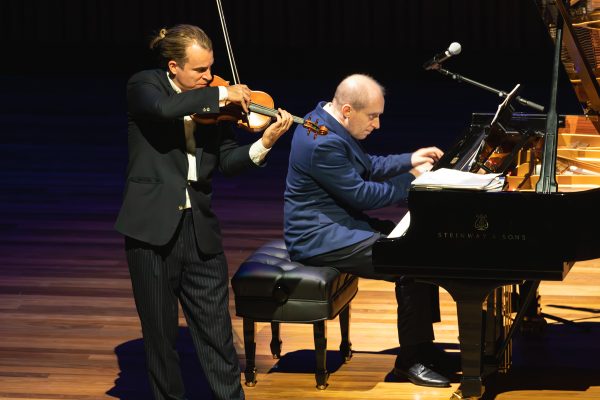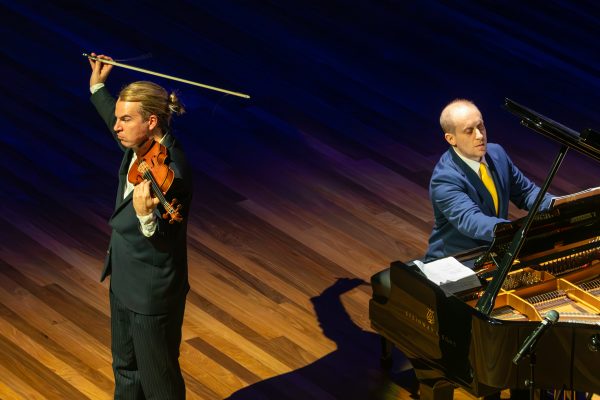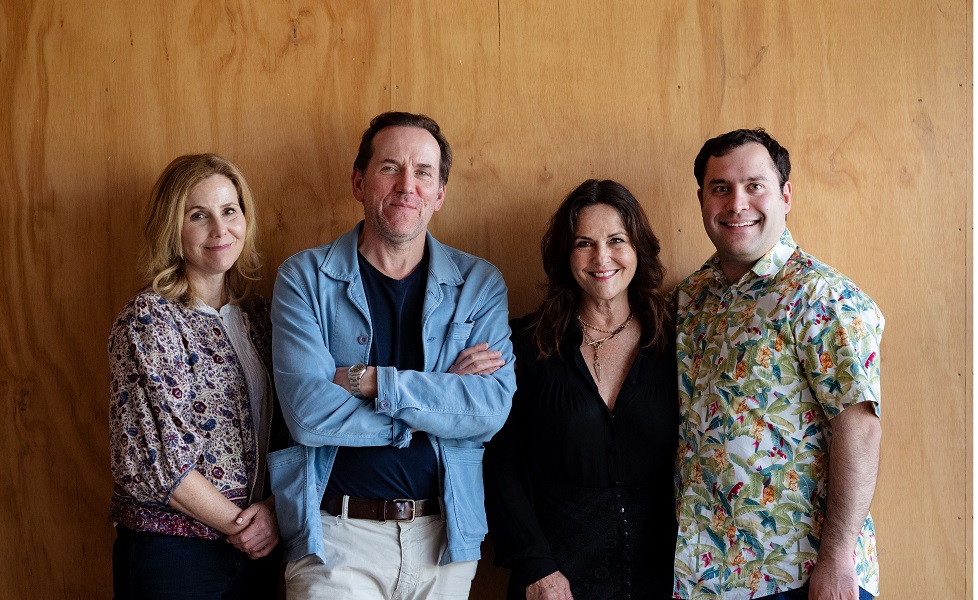
Music / Daniel Röhn & Simon Tedeschi. At Snow Concert Hall, October 7. Reviewed by ROB KENNEDY.
SUFFUSED with storytelling, fantasy, and unbridled virtuosity, this journey into the golden era of the ’20s and ’30s with two musical stars was a night nothing short of brilliant.
With music from the jazz age and classical stylings, The Roaring Twenties was a time of musical crossover. Experimentation and many wild days and nights in the grip of an expanding and freer time that sat in between two of the world’s darkest periods; this music had it all.
Opening with a “Prelude and Allegro”, by Fritz Kreisler, the pair were straight into this romantic piece. Full of bravado and showy violin cadenzas, its song sang out among profound chords on the piano.
Kreisler again, a transcription of JS Bach’s “Gavotte, Partita No. 3”. This lively, cheery tune showed its forthright nature in the hands of these two exemplary musicians. Then another Kreisler transcription, this time Paganini’s “Caprice No. 20”. But before that, some musical hijinks from the pair explaining the unique language of Kreisler. The Paganini was romantic, subtle and oh-so-very catchy. It burst with colour.

Then Debussy’s “Sonata for Violin and Piano”. His final work, written in 1917, is in three movements. It’s worth pointing out that Röhn performed without sheet music, not even for this, the longest work of the night. This atmospheric and delightful piece belies the time it was written during World War I. It’s a testament to Debussy’s compositional skills.
It was played with the utmost sensitivity. Röhn is an extraordinary performer. There were gasps from the audience in response to his ability.
Prokofiev’s march from “The Love of Three Oranges”, arranged by Jascha Heifetz, followed. This quirky, yet beguiling piece stands strongly in the realm of all music. Its idiosyncratic nature blends a Russian folk tune into a modern, almost earworm piece.
“Moto Perpetual” by Cecil Burleigh was a short yet brilliant and ultrafast work. What skill both performers showed.
Josef Suk’s “Song of Love”, is romanticism personified. It wears its heart on its sleeve as it oozes out rich beauty. To finish the first half a Spanish dance, “Zapateado”, by Pablo de Sarasate. Fun and musical brilliance abounded. Röhn’s and Tedeschi’s fiery performance lit up the stage, especially when Röhn danced across it backwards to great laughter.
After the intermission, several works by George Gershwin. Three preludes for solo piano were played with immense love and insight. Then that clever song, “It Ain’t Necessarily So” from “Porgy and Bess”. Arranged by Jascha Heifetz, it had that deep southern swing.
Kreisler returned with an arrangement to the “Caprice in A minor”, by Henryk Wieniawski. Then the movie music composer, Erich Wolfgang Korngold. A short work titled “March of the Watch” from “Much Ado About Nothing”, told a tale of a plodding policeman with lifelike animation.
“Zephir” by Jenö Hubay came next. It had a fittingly light and breezy atmosphere. Then another Kreisler work, one of his own, but in the style of WF Bach. Titled “Grave”, it sounded as serious as its name suggests.
To finish the program, a “Suite in the Old Style”, by Christian Sinding. A Norwegian composer who may not be well known, created this three-movement work as a showpiece. I’m sure Röhn could not have played it any faster. It had some lovely tunes that danced and sang with superior musicianship.
Despite the bow barely having any strings left, an encore of Kreisler was inevitable. What a grand gala concert this was.
Who can be trusted?
In a world of spin and confusion, there’s never been a more important time to support independent journalism in Canberra.
If you trust our work online and want to enforce the power of independent voices, I invite you to make a small contribution.
Every dollar of support is invested back into our journalism to help keep citynews.com.au strong and free.
Thank you,
Ian Meikle, editor



Leave a Reply